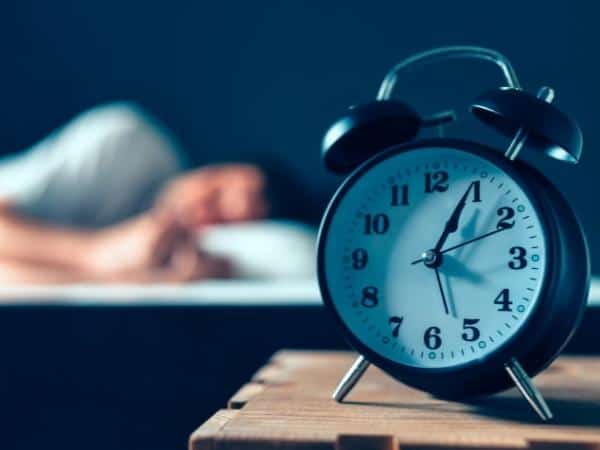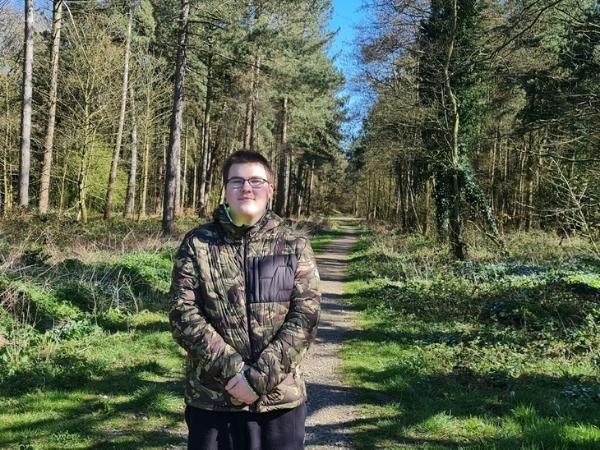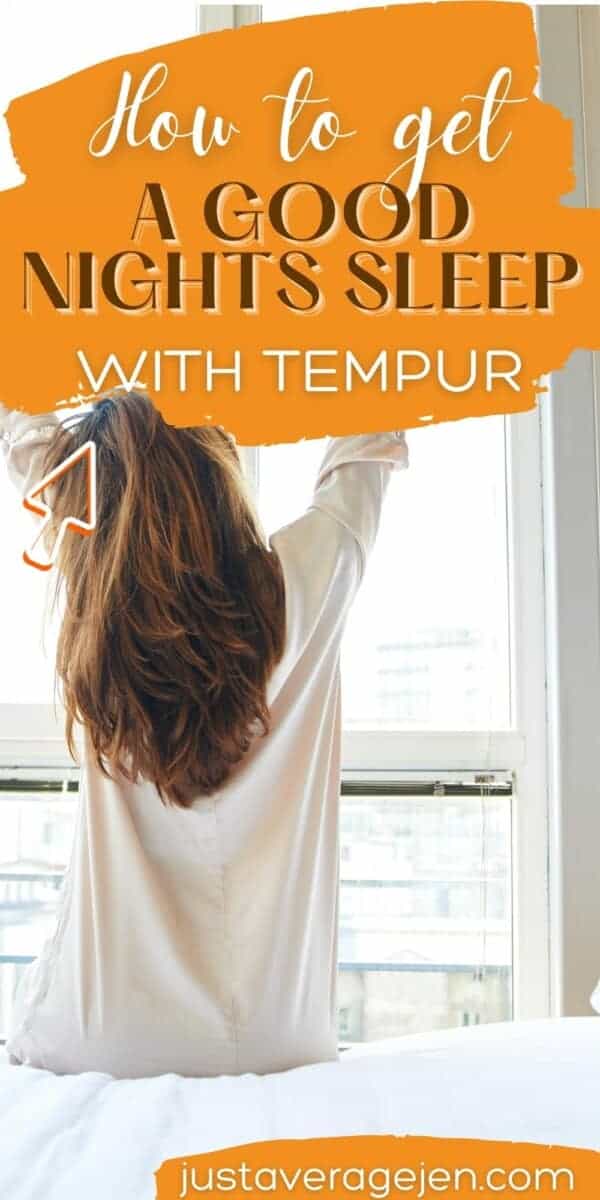How to use sleep cycles to balance sleep and exercise
This post is in conjunction with TEMPUR® but all thoughts are my own.
Do you like your sleep as much as I do? I am always tired and open to having a nap during the day. I guess part of this I think is linked to my fibromyalgia and depression, but also I do just like sleep too! Perhaps with better sleep cycles, I could avoid wanting to nap so much. Here I share how sleep cycles, sleep and exercise are all linked.

How does exercise affect sleep?
We all know how tired you feel after a day out with lots of walking, this is of course an extreme example. You do not need to spend all day out of the house on your feet to exercise. Any amount of exercise can help you sleep better.
The reason that sleep helps after exercise is that during sleep your body produces growth hormone. Whilst we are young this of course helps us grow as the name suggests.
When we are older this growth hormone is what helps out body repair muscles after exercise. If you do not sleep enough these muscles do not have time to heal. Before you know it, your body does not want to, or can not exercise.
Equally, exercise helps you sleep. Not just because you are shattered after the exercise and want to sleep but due to your sleep cycles. The circadian rhythm (body clock) of your body picks up that you have exercised and that therefore this is daytime.
If you have a really sedentary life you will have poor sleep cycles as this body clock gets confused. Morning exercise is perfect for a good night’s sleep.

TEMPUR® partner with Drops Le Col cycling team
TEMPUR® knows how important high-quality sleep is. They work with various athletes to help ensure their products are perfect for athletes for a good long night’s sleep.
Previously TEMPUR® has partnered with Serena Willams, this year they have chosen Drops Le Col cycling team, a road cycling team that has the aim of helping women to realise their cycling potential whatever their age and experience.
I love that TEMPUR® has given every member of the team a mattress and pillow. They know the mattress material that adapts to your body as you sleep is perfect for athletes to get a good night’s sleep.
The aim is that their new pillows and mattresses will help promote their recovery and ensure they compete at the very highest level. I love the TEMPUR® pillow I have. It is so comfortable, like no other pillow I have ever tried!

What do sport and exercise really mean?
In my opinion sport and exercise are terms that are not as interchangeable as people think. Sport is usually a term to describe specific exercises such as running, football and golf. Exercise on the other hand is anything that increases your heart rate and gets your body moving.
Exercise could be walking children to school, using the stairs instead of the lift or even walking the dog. If you are moving more than you usually would and getting your heart rate up then this is most definitely exercise. Even if it wouldn’t usually be deemed a sport.
If you do more of these activities then perhaps you could get into better cycles with your sleep. Exercise doesn’t have to be for weight loss or as part of a sport. It could just be as a way of keeping busy and encouraging your body to sleep better.

My exercise and sleep during the lockdown
I don’t know about you but I think most people did a lot less during the lockdown. Whether that be not going to the gym or not walking the kids to school it all adds up.
I work from home so don’t go out frequently but during the lockdown, I went out even less. I didn’t have to take Ben to school and stopped going shopping.
As someone classed as clinically extremely vulnerable it seemed the sensible thing to do.
I found my sleep deteriorating and hadn’t really realised why until I looked into sleep cycles. The nights I had been for a family walk in the woods by our house (pictured above) I definitely slept better.
I hadn’t walked far or fast, just a leisurely stroll around the woods, sometimes seeing deer there too.
It all made sense, the exercise and fresh air were helping me to have better sleep cycles. Realising this has made me think more about the exercise and movement I do every day.
Whilst some days I don’t have much time to exercise I do try and go for a little walk to take Ben to his school bus every weekday. I can feel the difference in me on the days I do this.

What are your bodies natural sleep cycles?
Do you know much about your sleep cycles? Have you ever considered it since you learnt about it at school? During the day our body clock, often known as the circadian rhythm is guided by natural light, digestion, mood and exercise.
Using these things helps our body to know where in the 24hr cycle it should be. These cycles can easily be disrupted by shift work, jetlag and other similar disruptions to our routine.
It is important to be aware of what our body needs and how to ensure it is kept as regular as possible.
The first part of your sleep lasts for around 10 minutes. It is very light sleep where you can easily be woken.
This then leads to a light sleep where your body temperature drops a little and your heart rate slows. At this point, if you are not comfortable you are likely to wake up and start the whole process again. This part of your sleep lasts for around 10-25 minutes before you move into a deep sleep.
During the following part, the deeper sleep, your body repairs and regrows tissues builds bone and muscle and strengthens the immune system. It is this part of your sleep that you really need and affects your ability to exercise.
The next part of your sleep is your REM sleep when you dream. Your brain is very active, and parts of your brain associated with learning are constantly stimulated during this period.
This cycle lasts for around 90 minutes. Your body goes through a number of these cycles as you sleep. Adults should have around 8 hours of sleep per night. If you have much less than this your body will not have so much time to repair.
For a good night’s sleep, you need to get through these sleep cycles undisturbed. Ensuring both you and your partner are comfortable is really important.

5 simple things you can do to help you sleep well
If you want a better night’s sleep with longer, deeper and good high-quality sleep there are a few things you can do to help.
- Thinking about your hour before sleep makes a huge difference to the quality of your sleep. Ensure you don’t drink caffeinated drinks, avoid looking at screens and think about doing relaxing things. Tidy your bedroom too. Lots around when you are trying to sleep, especially things you need to do, will never help you sleep well.
- Ensure that your bed, mattress and pillow are the best quality you can afford. If you do not have the money for a new mattress then how about investing in a new pillow? That could make a big difference on its own for the time being. Mattress material really does affect your sleep quality. If you are not comfortable and supported with good airflow then your sleep will be poor.
- Consider the light in your bedroom. If you always wake up early is it because the morning light disturbs you? Simply buying some blackout curtains or blinds could help avoid this.
- Think about any background noises that are affecting your sleep. Instead of putting the washing machine on before bed, why not try a week or putting it on earlier in the evening? It could make a difference to your sleep quality and help you to get a better night’s sleep.
- Go to bed earlier! Starting your sleep an hour earlier could make all the difference. If you have new bedding and a new mattress and pillow, like those from Tempur, maybe you will actually want to lie in bed earlier as you are so comfortable there. It would then be natural to drift off earlier as you are so comfortable!
What do you do to get a good night’s sleep? Are you aware of the sleep cycles and how exercise can help you sleep? If you want to try TEMPUR® for yourself why not take a look at the range?
